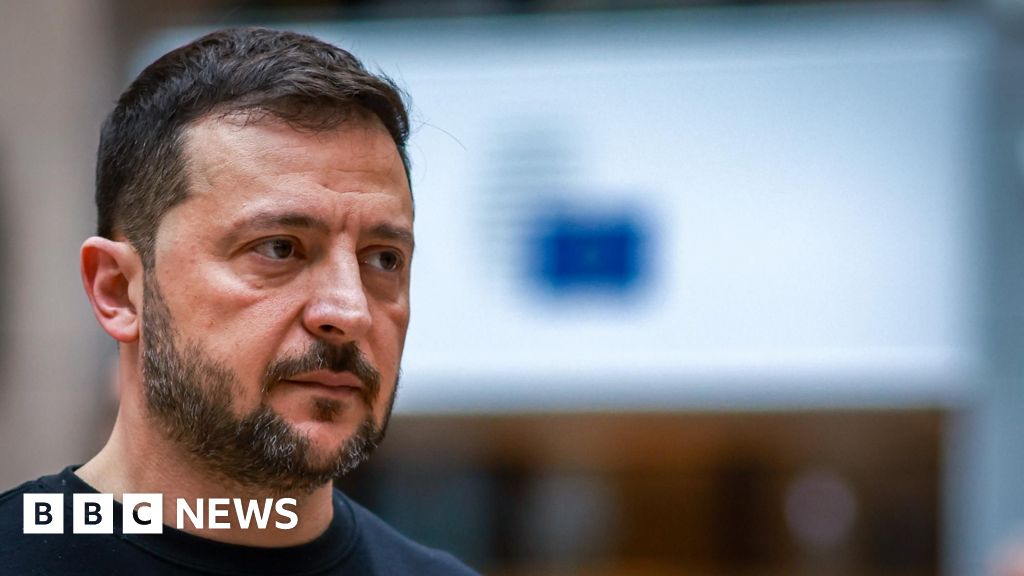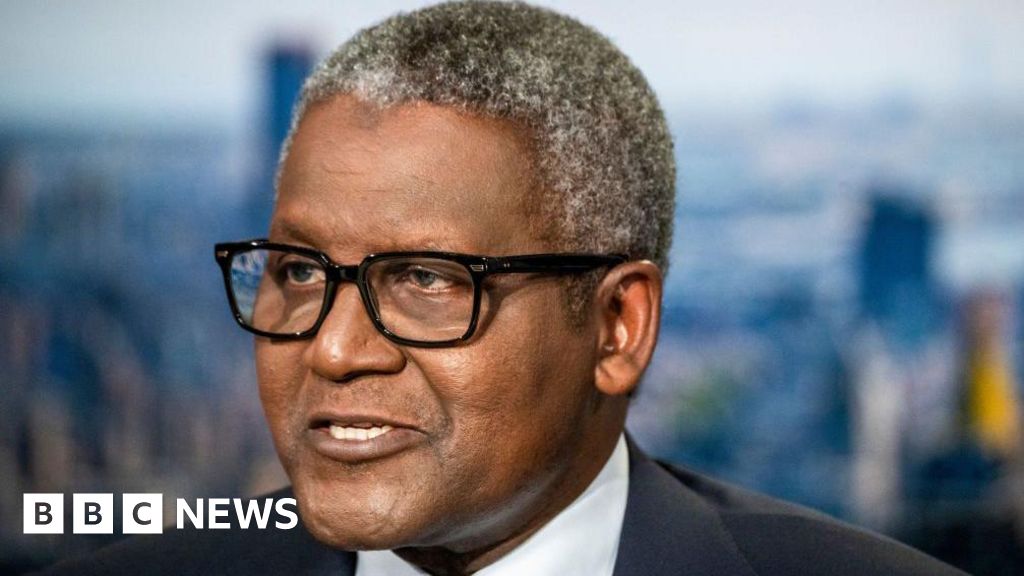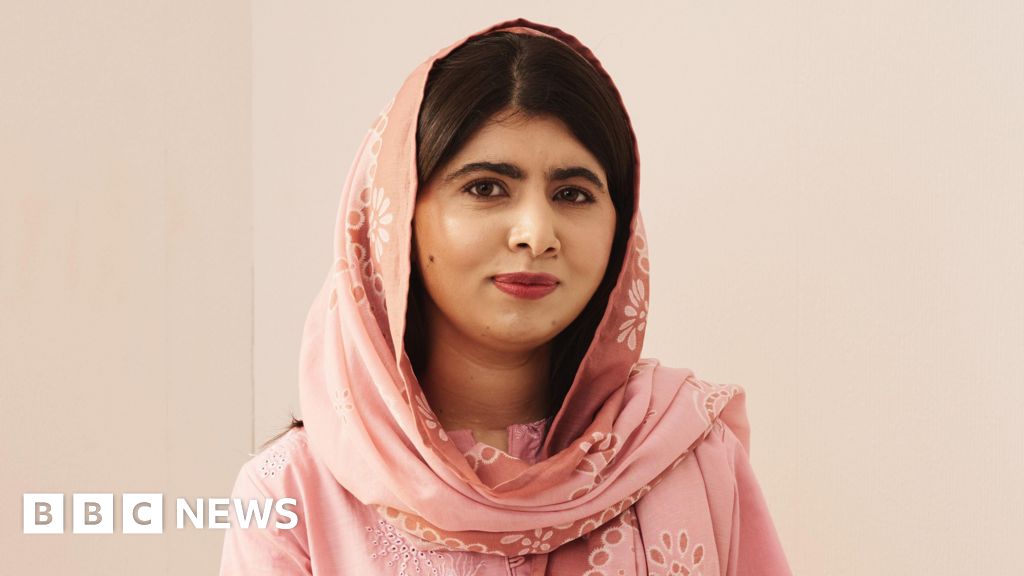ARTICLE AD BOX
By Paul Kirby
BBC News
Image source, Getty Images
Image caption,Emmanuel Macron won the 2017 race against Marine Le Pen by a big margin
Emmanuel Macron and Marine Le Pen are proposing two very different futures for France, at home and abroad.
As the two candidates prepare to face off in a televised debate on Wednesday ahead of Sunday's vote, what are their rival plans for the next five years?
National priority v complete renewal
When the cost of living became the number one issue of the election, far-right hopeful Marine Le Pen made that the focus of her campaign. But her other big plan is to make social housing, jobs and welfare a "national priority" for French nationals and to fight Islamism. Under the banner Marine, Présidente, she tells her supporters victory has never been so close.
The centrist president is trying to rally voters under the slogan Nous Tous - All of us. And after five years in power, Emmanuel Macron his offer is for "complete renewal", as he tries to attract voters from the left as well as the mainstream right.
Cost of living
Marine Le Pen has promised a raft of measures to cut the cost of living, She wants to scrap income tax for all under-30s, reduce VAT on fuel from 20% to 5.5% and abolish it on 100 other essentials. She wants to get businesses to raise wages by 10%, making the increases free of employer tax contributions, and to push up teachers' salaries by 3% every year for the next five years. She also wants to slash toll fees on motorways by 15% by renationalising them and to privatise public broadcasting by scrapping the TV licence fee of €138 (£115).
Emmanuel Macron says the government has already spent billions of euros capping energy bills and he proposes that employers should be allowed to give staff an untaxed bonus of up to €6,000. He wants to increase teachers' wages too in return for extra responsibilities and he is also prepared to scrap the TV licence fee. Bosses' organisation Medef say his policies are better for growth and jobs, while warning that Ms Le Pen's are unfunded and would lead France into a dead end.
Image source, Getty Images
Image caption,Many voters on the far left are expected not to vote for either candidate
Pensions
Emmanuel Macron wants to pay for much of his programme by raising the pension age from 62 to 65. But his policy has not played well with voters - especially on the left - so he has now indicated it could be raised to 64 instead. "It makes sense that I should be ready to listen," he explained. He has also promised to raise the minimum state pension from €950 to €1,100 (£785-£910).
Marine Le Pen wants to keep the pension age at 62, although anyone who began working at 20 could retire at 60. She said voters would understand her opponent was trying to win over or appease left-wing voters. She wants to raise the minimum state pension to €1,000, less than her opponent.
Immigration and security
Marine Le Pen wants a referendum on immigration, with plans for strict rules for entering France and becoming French. Under a highly controversial proposal called Priorité nationale (national priority), she also wants French nationals to be given housing and social services ahead of foreigners - with 620,00 homes for foreign nationals put on the market for families where at least one parent is French. She was initially in favour of holding a referendum on the death penalty before realising it was "anti-constitutional".
Emmanuel Macron has accused her of an "authoritarian" drift and failing to respect the constitution. He has condemned Ms Le Pen's "nationalist agenda, which is not patriotism". He has promised to free up police and gendarmes from admin tasks to to double the numbers on the street by 2030, with 11 new mobile units and 200 brigades of gendarmes (military police). Marine Le Pen also promises 20,000 new prison places and 7,000 extra police.
Headscarves
Marine Le Pen wants to ban women from wearing the headscarf in public places and fine them for not doing so. She calls the veil a "uniform" imposed by people with a radical vision of Islam. France has Western Europe's biggest Muslim population, and as 69% voted for far-left candidate Jean-Luc Mélenchon in the first round, the Muslim vote could play an important part in the second round.
Emmanuel Macron has no plans for change and made clear his opposition to his rival's policy by praising a young woman wearing a hijab who said she was a feminist. "This is the best answer to all the nonsense," he said.
Voting reform
One big question for Marine Le Pen is how she could push through all her reforms if she won. She has few credible options for a government, relying on promises of a government of national unity. Her National Rally has only seven seats in the National Assembly and it is difficult to see her winning a majority in elections in June. The electoral system works against her National Rally party, so she wants to introduce proportional representation (PR) in legislative elections and a seven-year term of office for president. And one of her flagship policies is citizen referendums, which not only bypass the problem of parliament, but show the voters she is consulting them too.
Emmanuel Macron is also campaigning to introduce an element of PR to the parliamentary vote, but says his opponent's plans for referendums indicate that she sees herself as above the constitution and can change the rules.
Europe
Emmanuel Macron has called this election a "referendum on Europe", arguing that Europe protects France from crises and war, accusing his opponent of wanting to leave the EU in a "Frexit" without daring to say so.
Marine Le Pen has moved a long way from her original plan to leave the EU, although the Macron camp believes that is her ultimate plan. "Nobody is against Europe," she said after the first round. And yet in 2012, she was in favour of pulling France out of the EU, a stance which was then dropped that in 2017 and said she wanted to leave the euro instead. "Now she says she wants to stay within the European Union but change it from the inside, to achieve a Europe of sovereign nations," says Sylvie Kaufmann of French newspaper Le Monde.
She has also vowed to halt all co-operation with Germany, including military tank and warplanes projects, preferring to see France as a "big power that counts". An admirer of Brexit, she talks about freeing France from the "straitjacket of Brussels", while denying she harbours hopes of Frexit.
Russia and Nato
Marine Le Pen has been critical of Russia's invasion of Ukraine, but her reliance on Russia for bank loans to her party and her friendly relations with Vladimir Putin have not been forgotten. Her campaign team had to deny pulping 1.2m election pamphlets because they featured a photo showing her shaking the Russian leader's hand ahead of the 2017 election. She is also no fan of Nato, proposing that France leaves its "integrated command" while remaining in the organisation, as it was from 1966-2009. After the war she believes there should be a "strategic rapprochement between Nato and Russia".
Emmanuel Macron has played a key diplomatic role in the war, with France holding the presidency of the EU. That initially worked in his favour in the opinion polls. But he acknowledged he was not fully focused on the race for the presidency, holding his first big rally only eight days ahead of the first round.
Race for Presidency
Watch: Could Marine Le Pen win the French elections?
Environment
Marine Le Pen is not known for her green views. She does not just want to stop building wind turbines, she wants to start dismantling the ones that already exist. And she wants to end subsidies for renewable energy. She also wants to ban food imports that don't meet French standards and she aims to force school canteens to provide 80% of French agricultural products.
Emmanuel Macron has already secured the backing of the one Green presidential candidate, Yannick Jadot. He wants to make France the first big country to stop using coal and gas and has pledged to build six new nuclear power stations to add to France's energy mix of 75% nuclear. He has called Marine Le Pen's plan to leave renewable energy a "complete aberration".
Health and education
So-called healthcare deserts in rural areas of France have become a big election issue. Emmanuel Macron wants to recruit another 50,000 nurses and carers by 2027. Marine Le Pen blames her rival for the closure of 18,000 hospital beds during his presidency and proposes a halt to further closures and the creation of another 10,000 nursing places.
Mr Macron also wants to focus on vocational education, with a 50% increase in paid work placements. All schools would provide more sporting activities, so that all six to 12-year-olds would do 30 minutes of sport every day from September.

 2 years ago
126
2 years ago
126








 English (US)
English (US)